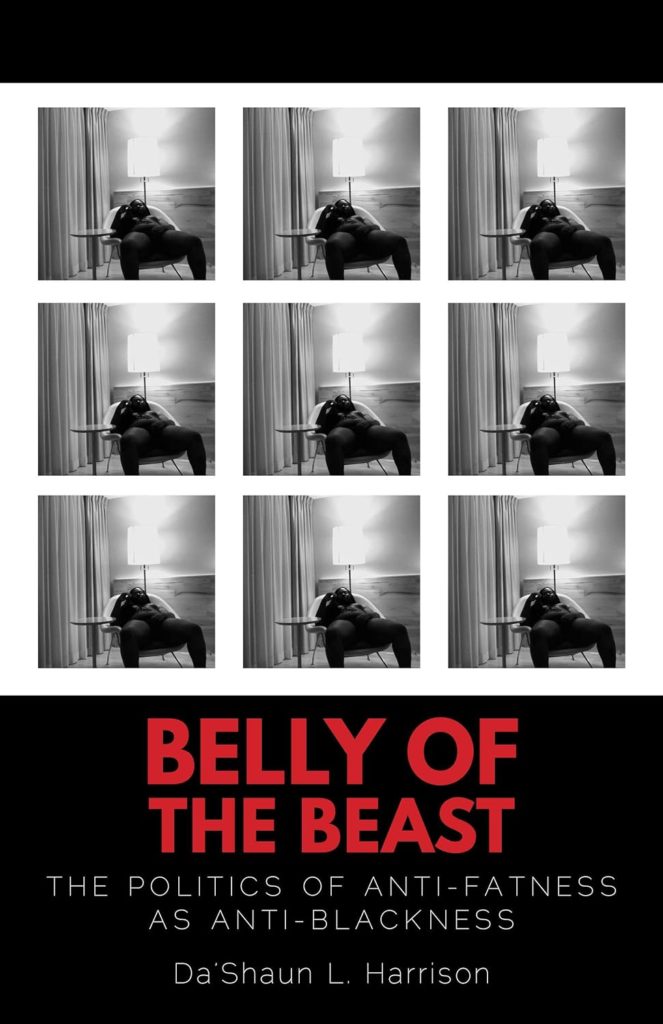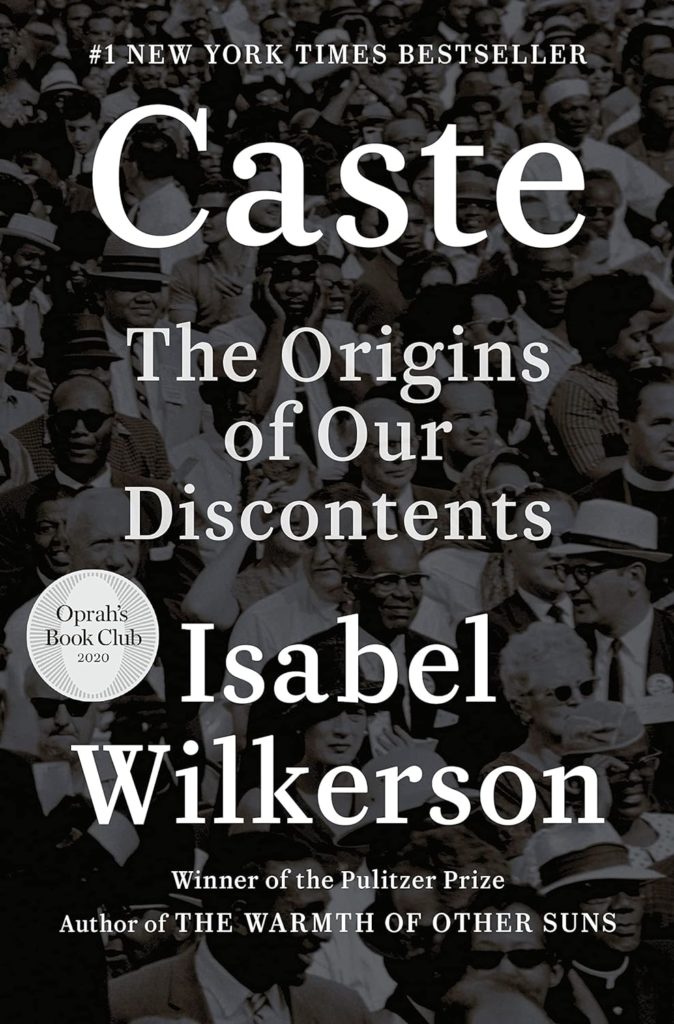I don’t read a lot of non-fiction books, but it’s one of the things I’ve been trying to change. With them I try to read a chapter every night, but it allows me to go back and re-read and let it sit with me. Keep reading for my last non-fiction book reviews of 2023, I read Caste and Belly of the Beast.
(Disclaimer: Some of the links below are affiliate links. For more information you can look at the Policy page. If you’re uncomfortable with that, know you can look up the book on any of the sites below to avoid the link)
Belly of the Beast: The Politics of Anti-Fatness as Anti-Blackness by Da’Shaun Harrison
To live in a body both fat and Black is to intersect at the margins of a society that normalizes anti-fatness as anti-Blackness: hyper-policed by state and society, passed over for housing and jobs, and derided and misdiagnosed by medical professionals, fat Black people in the United States are subject to culturally sanctioned discrimination, abuse, and trauma.
In Belly of the Beast, author Da’Shaun Harrison–a fat, Black, disabled, and non-binary writer AMAB (assigned male at birth)–offers an incisive, fresh, and precise exploration of anti-fatness as anti-Blackness. Foregrounding the state-sanctioned murder of Eric Garner in a historical analysis of the policing, disenfranchisement, and invisibilizing of fat Black men and trans and nonbinary AMAB people, Harrison discusses the pervasive, insidious ways that anti-fat anti-Blackness shows up in everyday life. Fat people can be legally fired in 49 states for being fat; they’re more likely to be houseless. Fat people die at higher rates from misdiagnosis or non-treatment; fat women are more likely to be sexually assaulted. And at the intersections of fatness, race, disability, and gender identity, these abuses are exacerbated.
Taking on desirability politics, f*ckability, healthism, hyper-sexualization, invisibility, and the connections between anti-fatness and police violence, Harrison viscerally and vividly illustrates the myriad harms of anti-fat anti-Blackness–and offers strategies for dismantling denial, unlearning the cultural programming that says “fat is bad,” and moving beyond the world we have now toward one that makes space for the fat and Black.
Review

Belly of the Beast is a non-fiction book which pokes at the intersectionality in our lives. It doesn’t shy away from the grey areas, the difficulties, and complexities. Beginning with how we imagine and picture ourselves in our bodies, in our dreams and fantasies, Belly of the Beast voiced – in a more elaborate way – some of what I had been thinking about the ‘self-love’ movement and more. By going further, Belly of the Beast explains how self-love will not solve systemic injustice.
The political has not made room for data beyond the personal
And the book only continues from there connecting how ‘prettiness’ effects how we experience the world, how it sees us, and the links to desire and power. It talks about how a lack of confidence is deemed as a moral feeling, not a symptom of the society. Something that I continue to learn about are the ways medicine has been anti-fat and anti-black (combined with sexism), to create conditions, dismiss pain, and experiment. The ways in which together with media, it perpetuates a culture which profits off of our own self-hatred.
And the quick hop, skip, and a jump to the dehumanization of people. To the ways in which people will use it to justify inhumane treatment and cruelty. Would highly recommend this thought provoking read. Find Belly of the Beast on Goodreads, Storygraph, Amazon, Bookshop.org, & Blackwells.
Caste: The Origins of Our Discontents by Isabel Wilkerson
Beyond race, class, or other factors, there is a powerful caste system that influences people’s lives and behavior and the nation’s fate. Linking the caste systems of America, India, and Nazi Germany, Wilkerson explores eight pillars that underlie caste systems across civilizations, including divine will, bloodlines, stigma, and more. Using riveting stories about people—including Martin Luther King, Jr., baseball’s Satchel Paige, a single father and his toddler son, Wilkerson herself, and many others—she shows the ways that the insidious undertow of caste is experienced every day.
She documents how the Nazis studied the racial systems in America to plan their out-cast of the Jews; she discusses why the cruel logic of caste requires that there be a bottom rung for those in the middle to measure themselves against; she writes about the surprising health costs of caste, in depression and life expectancy, and the effects of this hierarchy on our culture and politics. Finally, she points forward to ways America can move beyond the artificial and destructive separations of human divisions, toward hope in our common humanity.
Review

Caste: The Origins of Our Discontents is a book recommendation from a friend and one I’ve passed along since. Written in a very digestable way – almost like a conversation – Caste examines the caste system within the United States and how it is perpetuated. The interplay of casteism and racism to subjugate, oppress, and terrorize. Caste had me sending quotes to friends. It made me re-think the history of the United States not only in a global context, but also the boundaries of racism and oppression.
Color is a fact. Race is a social construct
How individuality, not being seen as a symbol of our entire ethnicity is a luxury for the dominant caste. As a POC, I’ve never felt the freedom of that weight. The idea that my actions might not have rippling effects, that I would not be judged for every other fetishization, racist stereotype, and more. Not only the ways in which the caste system is constructed, but also this almost reverse justification.
All the ways the system will bend over backwards to justify itself. The heritability of our ‘caste’ along with the ideas of purity and pollution. The murky boundaries of our castes, our races, and our intersections. One of my favorite passages was how Wilkerson talks about forgiveness and how for one group it’s a matter of survival. To not hand out forgiveness becomes a source of danger. Whereas another caste takes forgiveness, this forced situation of power, as absolution.
Find Caste: The Origins of Our Discontents on Goodreads, Storygraph, Amazon, Bookshop.org, & Blackwells.